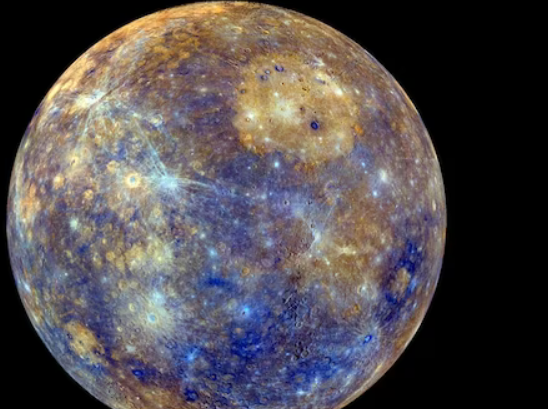“Singing” Plasma Waves Around Mercury
Mercury, the smallest planet in our solar system, is often overlooked due to its diminutive size, barely larger than Earth’s Moon. Its proximity to the Sun and the absence of an atmosphere have left its surface pockmarked with countless impact craters. However, recent findings by scientists have uncovered a fascinating aspect of this celestial neighbor that promises to expand our understanding of Mercury’s magnetic environment.
The Enigma of Mercury’s Plasma Waves
What sets Mercury apart from its planetary counterparts is its lack of a robust magnetic field, primarily due to its close proximity to the Sun. In a groundbreaking discovery, Japanese astronomer Mitsunori Ozaki, hailing from Kanazawa University, in collaboration with researchers from France and Japan, detected “whistling” sounds emanating from Mercury’s magnetic field. This phenomenon marks the first-ever recording of such chorus waves around Mercury.
Chorus waves are a known occurrence in the atmospheres of planets like Earth, Jupiter, and Saturn, among others. However, Mercury, often described as a rocky world with an almost “non-existent atmosphere,” due to constant bombardment by solar winds and radiation from the Sun, is a unique case.
Mercury’s Missing Components
Another peculiarity of Mercury lies in its absence of permanent radiation belts, akin to Earth’s ozone layer, which traps solar radiation within the planet’s magnetic field. The recent discovery of these plasma waves presents a unique opportunity to delve into the magnetic environment of Mercury and understand how the solar wind emitted by the Sun shapes the planet’s relatively feeble magnetic field.
Other Intriguing Insights into Mercury
Beyond this groundbreaking revelation, Mercury has continually offered captivating insights:
- Unique Auroras: Despite its lack of a substantial atmosphere, Mercury boasts its own peculiar auroras, a recent discovery that baffled scientists.
- Speedy Orbit: Mercury holds the record as the fastest planet in our solar system, completing an orbit around the Sun in just 88 Earth days.
- Not the Hottest: Contrary to popular belief, Mercury is not the hottest planet in our solar system. Venus clinches that title due to its dense and suffocating atmosphere.
- Shrinking Planet: Mercury is also known for its peculiar phenomenon of being a “shrinking planet,” a subject of debate among scientists for decades.
Month: Current Affairs - October, 2023
Category: Science & Technology Current Affairs






